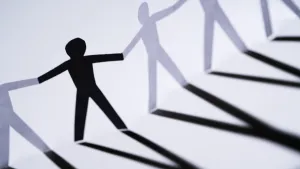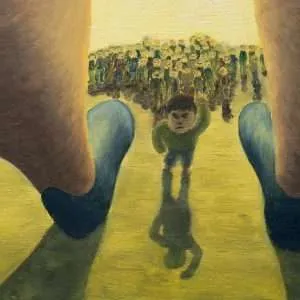Editorial Note:
This article on sociology and Nigerian society is being published on behalf of Applied Worldwide’s student essay competition. Students were prompted to respond to the question, “Why is sociology important?” We have awarded 16 finalists from all over the world, and will publish these essays over the next several weeks.
This essay was written by Adamu Usman Garko, a prospective student at Ahmadu Bello University in Nigeria. This essay received a second place award. We had a really great turnout and would like to thank everyone who submitted an essay. We received a wide variety of creative interpretations and responses, so browse our essay directory!
Adamu Usman Garko on Nigerian Society
Recently, I was in a conversation with a friend who, by happenstance, studies the same course as I do. The topic of discussion was the shady regard given to sociology as a discipline and why the discipline isn’t gifted the attention and reverence it deserves; in order to peak the myriad of disciplines that foster communalism, redefine the status quo of the society, and, to not only encourage budding sociologists, but also lure students to delve into the discipline. After several hours of incisive and critical conversation, we were tethered to the cruel discovery of the problem : a lack of orientation of the field’s importance borne out of exclusive individualism.
Sociology in our Society
The society is integral to our existence as humans. Even though we are the atoms that constitute the molecule of the society, an atom slips into oblivion in the absence of another atom to interact with. No human is exclusively independent of the other. History hasn’t reported any human who existed singly; without cohabitation. Since the society is integral, why, then, do we disregard and peel reverence off the bodies of people who study cultural institutions and bring forth policies that foster and strengthen our cohabitation as humans? Why do we deplete Sociology? Why do we regard it as a course deserving of low echelon when courses are ranked?
Sociology and Social Problems
The answers aren’t far-fetched, though. Our denigrating regard for sociology reflects a pseudo-readiness for peace and harmony in all regards. Nigeria, as a case study, is home to communities drowning in abject poverty. A visit to these communities equates a visit to hell; people starve to death on a daily basis, kids with eyeballs darkened by loss and hunger, children with faces pale with grief, youths with skin wrinkled by the excruciating pain of hunger.
You see people with skin outlined by bones, aged people with cheeks that are not cheeks but a skin the breadth of hair covering cheekbones. You see lips dry as the desert. You see debris as home to new born children. You see children who should be in neatly ironed uniforms seated in their respective classrooms roam about for food. You see classrooms with walls frail as a whisper. All these scenes are worrisome. The number of out of school children keeps picking a geometric surge as the day wanes and as a sociologist, I am in the know of the reasons behind these horrific decrepitude.
Sociology and Communities
The reasons behind my analogical inferences is to foreshadow the issues that eschew the sinews of many communities in Nigeria and, to torchlight the adverse effects that poverty and lack of education have on communities that behold them.
Sociology, as postulated by the German Sociologist, Max Weber, is a science which attempts to proffer, with interpretative adjudication of social action and a speculative insight into problems, solutions to the ills of the society. This definition pinpoints that, in order to find solution to a problem, one needs to trace the problem to its roots and expunge these roots. The process of technical tracing is what sociology, as a discipline, brings to fore.
The Future of Sociology in Nigerian Society
For a society to civilise, it must embrace sociology. As regards the existence of poverty and ignorance in our societies, the most direct approach to address the consistent deprecation in modus operandi is a complete and earnest exploration of sociology. In order to rid ourselves of ills, we, as a society, have to reawaken the interest of inhabitants of societies in sociology. This reawakening means instilling an interest to peruse the society and her many inhabitants in order to get a clear understanding of the root causes of perils like poverty and lack of education. When the root causes are perused, the solutions come in handy.
If, truly, we are wholly submerged in oceans of quest and thirst for a society peopled with inhabitants who nurse progress in their minds and foster development on all fronts, there has to be redirection of course and restitution of humanness. I mean, if we yearn for a society where, in times of doom, behold people who are blessed with foresight and utilise this to proffer solutions to the saddening state of events, there calls for an encouraging shift in regard given to sociologists because, sociology as a discipline, seeks an extensive fashioning of minds to tolerate and accommodate the myriad disparity between cultural institutions and values.
Commonness and Peace in Nigerian Society
It engineers the cause of peace as it instills in all and sundry, a sense of commonness. This sense of commonness is all that humans need, to have a sane society, to have a society devoid of racial subjugation and ethnic discrimination, to institute a society held in place by carrions of ambience; a society head by honest leaders and peopled by patriotic individuals who fondle harmony and desecrate whoever seeks to stain the white garb of peace.







